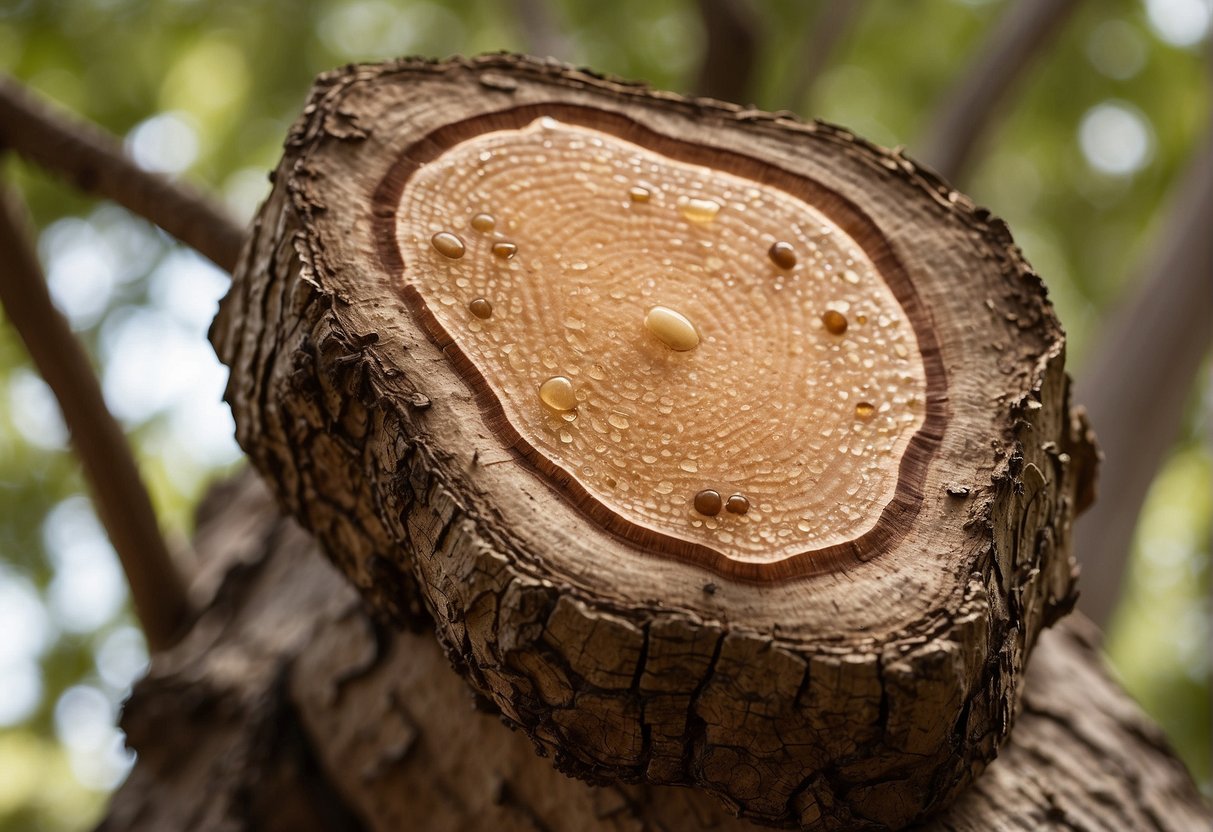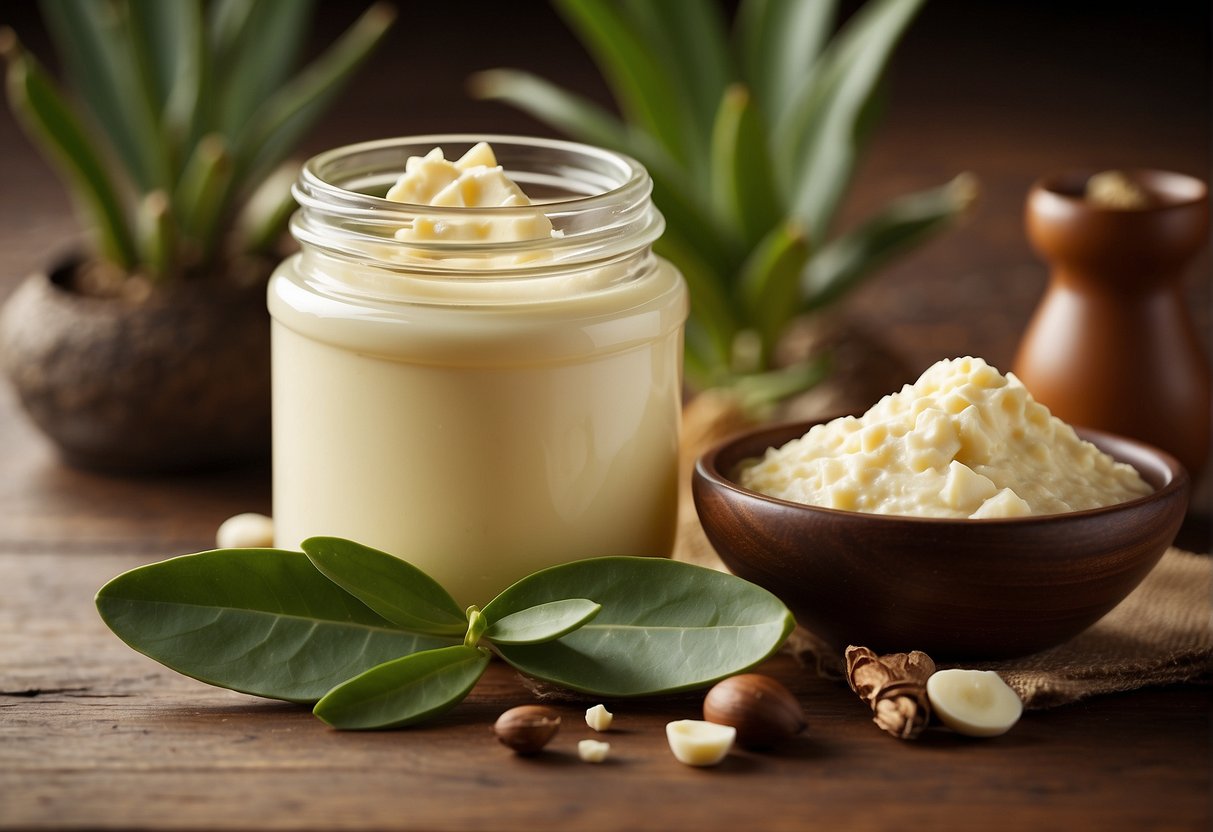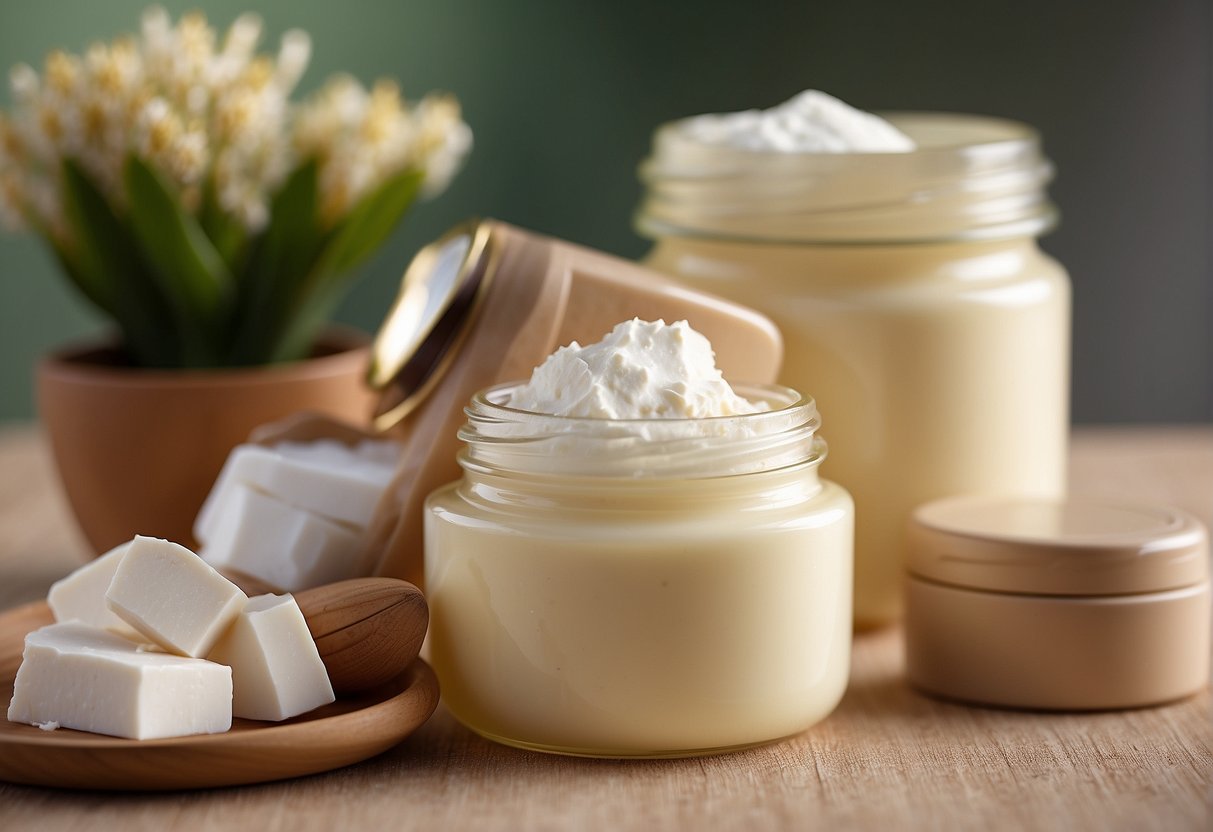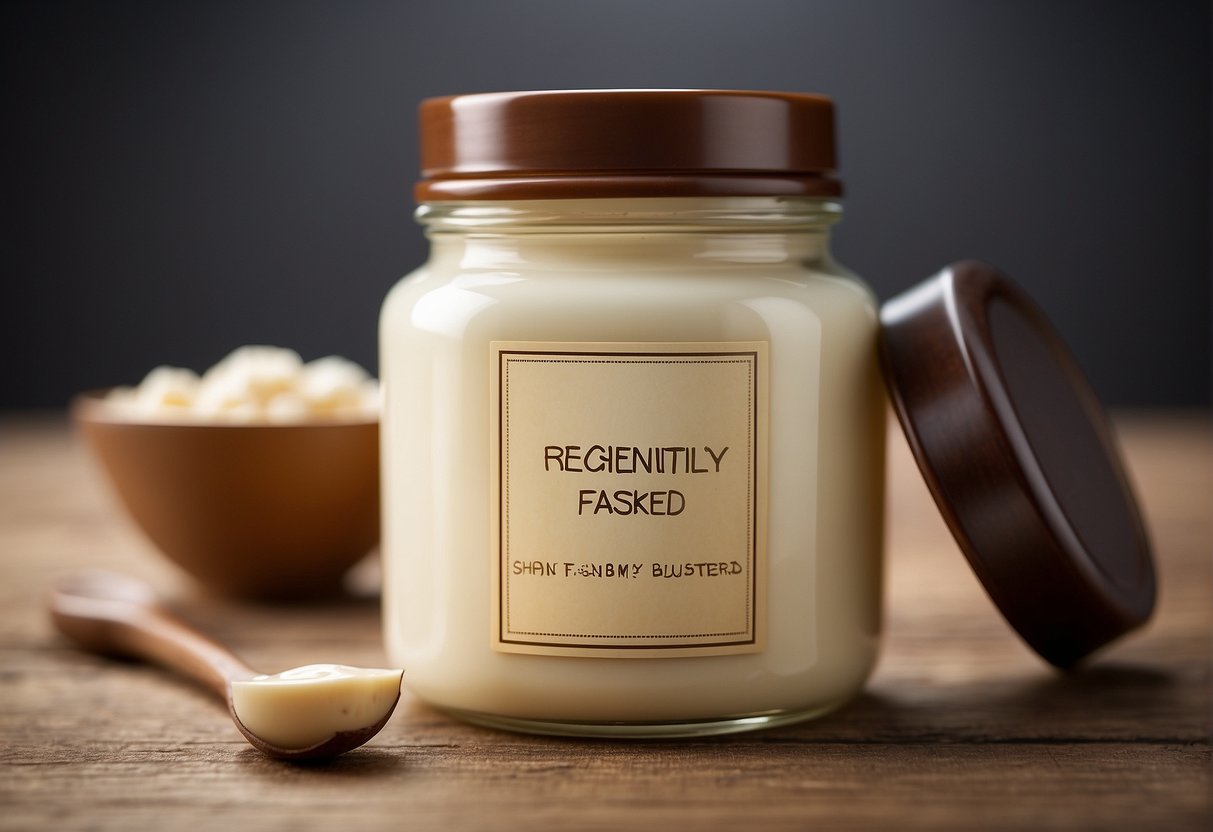Butyrospermum Parkii (Shea) Acne Benefits: Clear Skin Insights
Butyrospermum parkii, commonly known as shea butter, is a plant-based fat extracted from the nuts of the shea tree, indigenous to Africa. Its rich composition is known to offer numerous benefits for skin health, including moisturizing and anti-inflammatory properties, which have made it a popular ingredient in skin care products. When considering its effects on acne, shea butter's potential to alleviate skin inflammation and provide essential nutrients without clogging pores makes it a topic worthy of exploration.

In the context of skin care, our knowledge of shea butter's benefits extends to its use in treating various dermatoses, with recent studies suggesting its suitability for individuals with acne-prone skin. The anti-inflammatory and antimicrobial characteristics of shea butter may contribute to reducing acne symptoms and improving skin health. While it appears promising for this purpose, it's essential to understand the applications, benefits, and precautions associated with using shea butter for acne treatment.
Key Takeaways
- Shea butter is valued for its rich composition and skin health benefits, particularly for people with acne.
- Its anti-inflammatory and moisturizing properties can contribute to reducing acne symptoms.
- Careful application and considerations of quality are necessary when using shea butter in skincare routines.
Shea Butter Origins and Composition

Shea butter, derived from the nuts of the Vitellaria paradoxa tree, has been valued for its rich composition of fatty acids and vitamins. Our exploration focuses specifically on its African roots and the nutrient profile that makes it suitable for skincare.
Shea Butter in Africa
We recognize that shea butter originates from Africa, primarily in countries along the Sahel region, which includes nations like Ghana, Nigeria, and Mali. Local populations have long used this resource, both in cooking and traditional medicine. The raw, unrefined shea butter is especially prized for its purity and natural benefits.
Vitellaria Paradoxa and Butyrospermum Parkii Nutrients
When examining Vitellaria paradoxa, also known as Butyrospermum parkii, we find a rich nutrient profile including essential fatty acids that are critical for skin health. The composition is as follows:
- Oleic acid: 40-60%
- Stearic acid: 20-50%
- Linoleic acid: 3-11%
- Palmitic acid: 2-9%
- Vitamin A: Necessary for skin repair and rejuvenation
Refined shea butter, while still beneficial, may contain fewer nutrients than its raw, unrefined counterpart due to the processing it undergoes. It's the essential fatty acids like oleic and linoleic acids that offer moisturizing properties and a potential reduction in skin inflammation, assisting with conditions like acne.
Shea Butter and Skincare

Shea butter has become popular in skincare for its moisturizing and non-comedogenic properties. We explore its benefits in keeping skin hydrated, its role in skincare products, and its compatibility with acne-prone skin types.
Moisturizing Benefits
Shea butter is highly moisturizing due to its rich content of fatty acids and vitamins. These nourishing components help to lock in moisture, making it an effective solution for dry skin. Hydrating qualities stem from its ability to form a protective barrier that reduces water loss, leaving skin soft and supple.
Shea Butter in Skincare Products
We find Shea butter as a staple ingredient in a variety of skincare products, including body lotions, lip balms, and creams. Its versatility is due to both its excellent moisturizing properties and its ability to blend well without interfering with other ingredients. This has led to its widespread use in both cosmetics and therapeutic skin applications.
Non-Comedogenic Properties of Shea
Shea butter is considered non-comedogenic, which means it’s unlikely to clog pores, a crucial factor for those with acne-prone skin. Given its low comedogenic rating, shea butter can provide nourishment without contributing to further breakouts, making it suitable for a range of skincare routines.
Acne and Skin Health

Acne is a common skin condition that can be distressing and persistent, often requiring effective treatment options. Shea butter, derived from the seeds of the Butyrospermum parkii tree, is a natural substance that we are exploring for its potential benefits in managing acne-prone skin due to its anti-inflammatory and antioxidant properties.
Shea Butter for Acne-Prone Skin
Shea butter is increasingly recognized for its utility in skin care, particularly for acne-prone skin. Our observations point to its natural abundance of vitamins and fatty acids, which are crucial in maintaining the skin's hydration and elasticity. Significantly, its non-comedogenic properties ensure it doesn't clog pores, a vital feature for products aimed at treating acne.
Anti-Inflammatory and Antioxidant Effects
The anti-inflammatory properties of shea butter may help reduce the redness and swelling associated with acne. We understand that inflammation is a key factor in acne development and addressing this can lead to clearer skin. Similarly, shea butter's antioxidant properties combat oxidative stress, which is linked to both acne and long-term skin health, by targeting bacteria and reducing inflammation.
Additional Skin Benefits

In exploring the skin benefits of Butyrospermum parkii, commonly known as shea butter, we uncover its versatility beyond acne treatment. Shea butter is esteemed for its ability to nurture skin health through its rich content of fatty acids and vitamins.
Aging and Shea Butter
Shea butter is renowned for its anti-aging properties, largely due to its ability to promote collagen production. This natural substance assists in the reduction of wrinkles and fine lines by restoring elasticity to the skin, which also helps to strengthen the skin barrier. Regular application can thus lead to more supple and youthful-looking skin.
Shea Butter for Specific Conditions
We recognize shea butter's hydrating properties as being particularly beneficial for various skin conditions. Itchiness and rashes can be alleviated due to shea butter's anti-inflammatory qualities. Additionally, for those struggling with eczema, dermatitis, or psoriasis, shea butter can promote relief from symptoms by moisturizing and repairing the skin. It may also aid in the reduction of scars and stretch marks by enhancing skin elasticity and aiding in the regeneration of cells.
Usage and Precautions

In considering shea butter for acne management, we focus on application methods and the selection of appropriate shea products to avoid exacerbating skin issues.
Application Methods
To protect skin and possibly aid in healing, we suggest using shea butter sparingly to prevent clogging pores. It's important to conduct a patch test before full application, as even natural oils can trigger reactions. Pure shea butter has a low comedogenic rating, implying it's less likely to clog pores, but reactions can vary by individual.
Choosing the Right Shea Butter
When selecting shea butter, consider unrefined over refined options as unrefined shea retains more natural properties. If one opts for scented products, ensure the essential oil is 'Generally Recognized as Safe' (GRAS) to reduce risk of irritation. Always check the comedogenic rating of added ingredients to ensure they do not counteract shea butter's non-comedogenic benefits.
Environmental Impact and Quality

In our exploration of Butyrospermum parkii (Shea) butter with respect to acne treatment, we must consider both the sustainability of its sourcing and the caliber of the shea butter used. These two factors significantly influence the environmental footprint and the health benefits that can be provided by shea-based products.
Sustainable Sourcing of Shea Butter
We understand the importance of sustainable harvesting practices when it comes to the African shea tree, the source of unrefined shea butter. Sustainable sourcing minimizes environmental damage and ensures the long-term availability of shea butter. Refined shea butter often involves more processing and may be associated with greater environmental impact. By advocating for natural ways of sourcing and utilizing Butyrospermum parkii butter, we support both environmental health and the quality of the shea butter.
High-Quality Shea Butter Formulations
We assert that high-quality shea butter formulations are preferable for managing skin conditions like acne. Unrefined shea butter retains its natural properties, including vitamins and fatty acids that are essential for skin health. During cold months, the moisturizing and soothing properties of high-quality shea butter can prove especially beneficial. Hence, we prioritize formulations that maintain the integrity of the raw ingredients to ensure the utmost benefit to the skin without causing undue environmental damage.
Frequently Asked Questions

In this section, we address the most common inquiries regarding Shea butter, specifically with regard to its effects on acne-prone skin.
Can shea butter improve acne-prone skin?
Shea butter, known scientifically as Butyrospermum parkii, has anti-inflammatory properties that may help reduce redness and swelling in acne-prone skin. However, we recommend using it cautiously as it may not be suitable for all skin types.
Is there a risk of shea butter clogging pores?
Shea butter is considered to be non-comedogenic, which means it's unlikely to clog pores. However, since individual skin types can react differently, we advise patch testing before applying it to acne-prone areas.
How does shea butter affect skin scarring?
Due to its moisturizing properties, shea butter can promote skin regeneration and potentially reduce the appearance of scars. It's rich in vitamins that support skin healing, but more research is needed to confirm its efficacy in scar treatment.
What is the shelf life of shea butter?
Unrefined shea butter typically has a shelf life of about two years when stored properly in a cool, dark place. It's important to keep it sealed to maintain its properties and avoid rancidity.
Does shea butter contribute to skin lightening?
Shea butter does not possess skin-lightening properties; its primary function is as a moisturizer and skin soother. Any perceived lightening effects may be the result of its ability to improve skin texture and tone.
Can shea butter cause breakouts or skin irritation?
Shea butter is generally safe for most skin types and is not known to cause breakouts. However, it's possible for some individuals to experience an allergic reaction or irritation, particularly if they have sensitive skin. We recommend a patch test before widespread use.